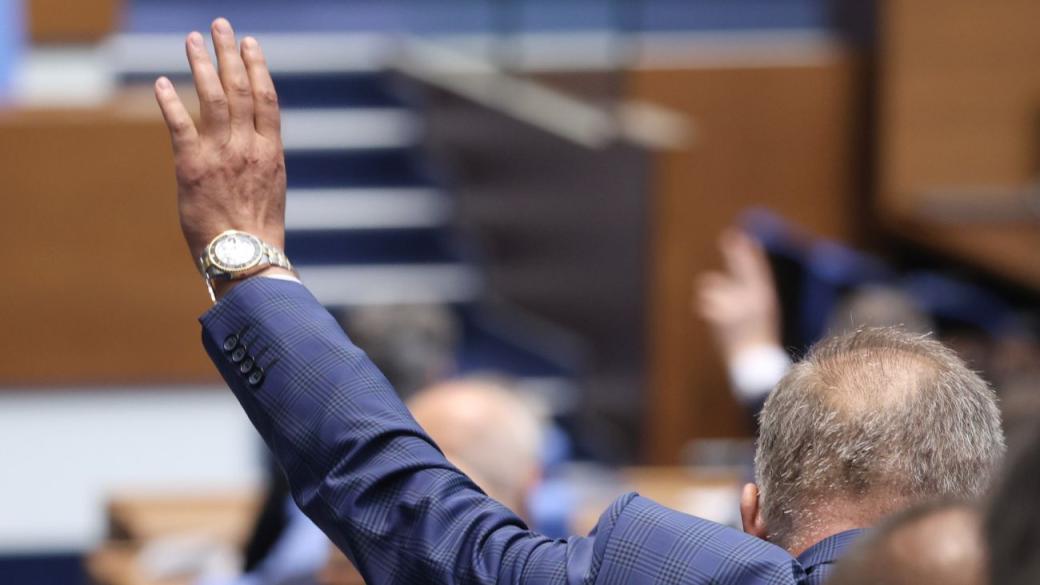The National Assembly allowed the government to combat speculation with non-market methods
MPs vowed to make changes between readings of the texts, which some called "economic madness"

The National Assembly approved on first reading the controversial amendments to the Law on the Introduction of the euro in Bulgaria. The texts, which give regulators more powers to combat speculation, higher fines for traders, and shorter deadlines for adaptation, were supported by 116 MPs, with 75 against and three abstaining.
During the debate, the bill was repeatedly criticized, described as “economic madness,” “absolutely scandalous,” and as creating conditions for pressure from the state.
The law creates conditions for brutal economic racketeering,” said Daniel Lorrer of “We Continue the Change – Democratic Bulgaria” (PP-DB).
According to him, as written, the law says that until the end of 2026, traders will not be allowed to increase prices unless there are objective economic factors determined by the CPC.
“Imagine that this is a trader who sells to another trader who exports, and his supplier has changed the price—what happens at that moment? Or he has had to raise wages because we here with you are raising the minimum wage? Is this objective or subjective? How will the CPC assess this accurately in order to impose a sanction?” asked Lorer.
With their hyperactivity, the state authorities are largely to blame for this hysteria with price increases,” said Dimo Drenchev from Vazrazhdane.
He quoted the final provisions of the bill, paragraph 15, section 1, which states:
The Council of Ministers may determine rules and conditions for the introduction of temporary countermeasures in the event of excessive increases in the prices of goods and services.
According to Drenchev, this allows the government to introduce “some measures, God knows what, not only non-market ones.”
It is not possible to write such a blank check,” the MP added.
Bogdan Bogdanov of the PP-DB described the bill as “absolutely scandalous,” saying it would cause damage and would not help in any way.
It could be worse
In response to the criticism, the chairman of the parliamentary budget committee and MP from GERB-SDS, Delian Dobrev, pointed out that all countries had similar legislation before introducing the euro.
If we do not adopt the texts in question, which I believe are lenient, we will have to adopt something even worse, but something must be adopted because everyone else has adopted it,” Dobrev said.
He denied that the amendments proposed anything like what MPs were talking about and added that the bill did not prohibit price increases.
The law does not prohibit price increases – it says that if there are objective factors, you can change the price, but if the only reason is the euro, this is prohibited,” the MP explained.
During the discussions, it became clear that between readings, amendments would be proposed to clarify the powers of the Council of Ministers, the economically justified reasons for higher prices, and those that would require traders to publish information on final sales prices on a daily basis (rather than weekly) to publish information on final sales prices.
Translated with DeepL.

 Simona Gotsova
Simona Gotsova 


